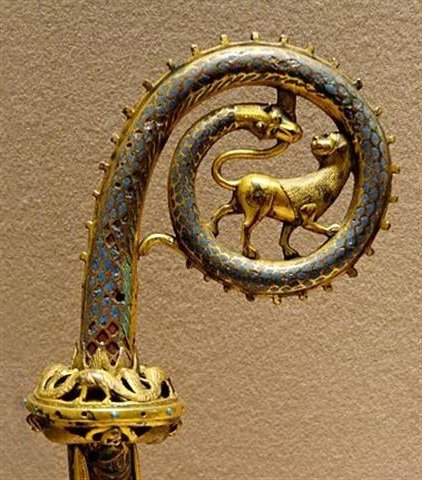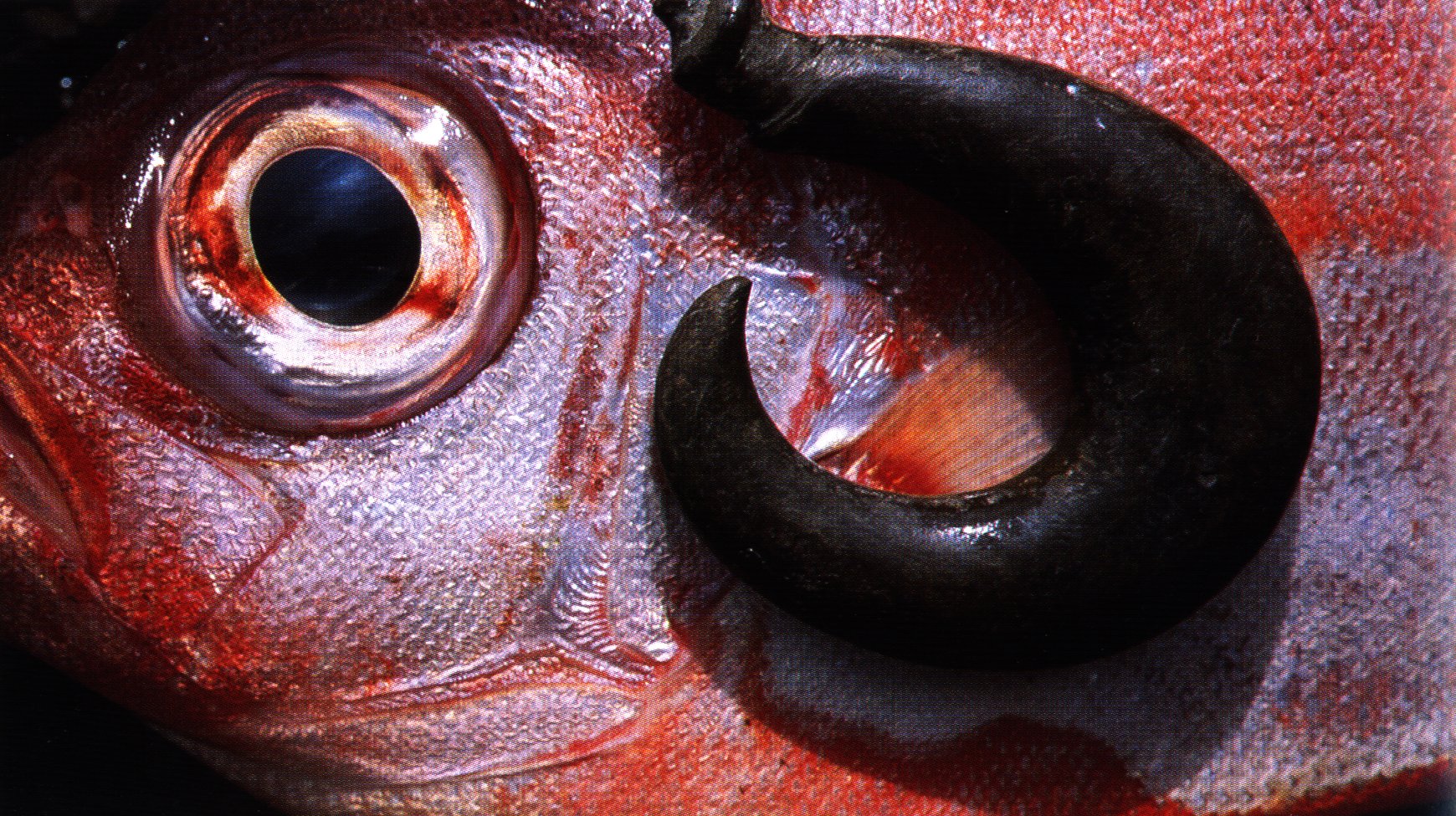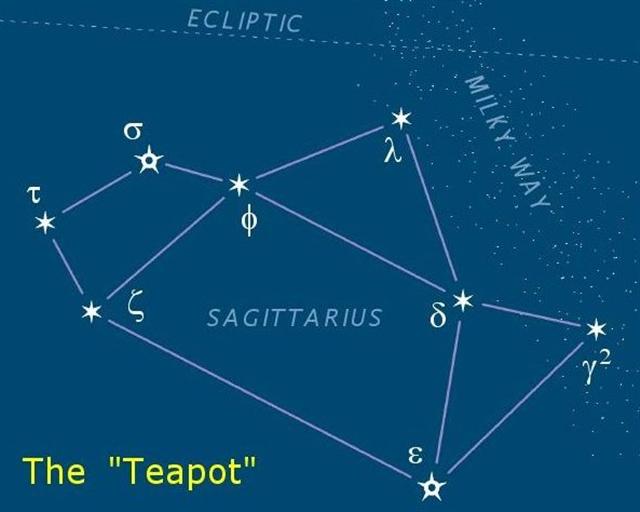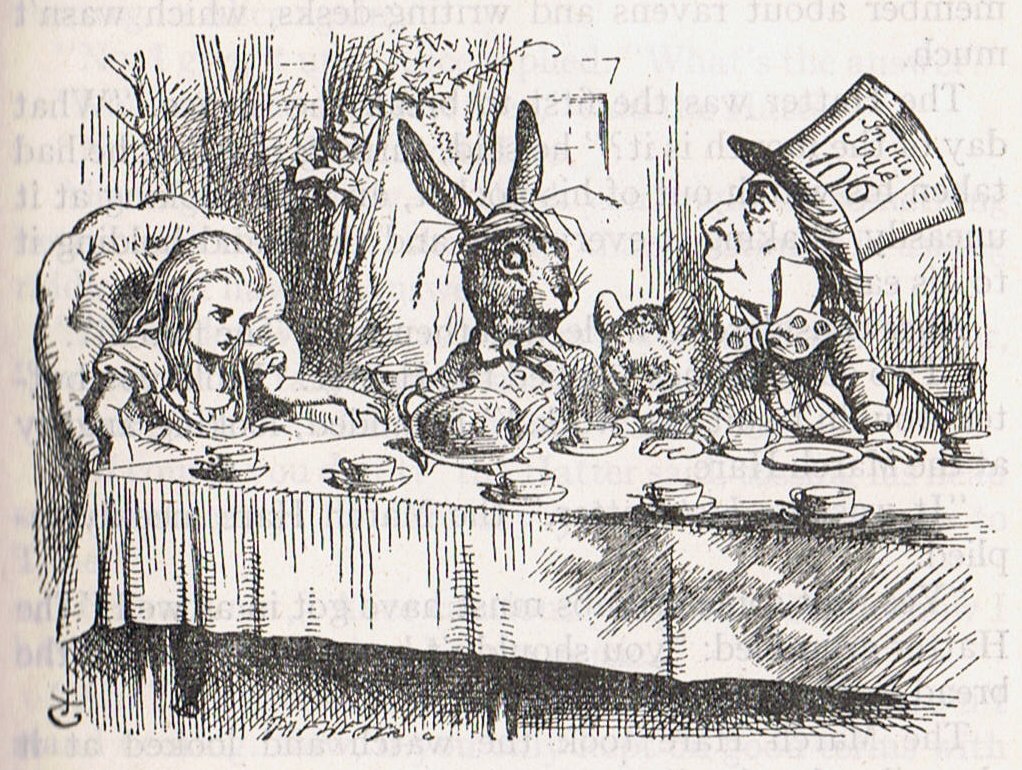In
ancient Egypt they thought Sirius was behind the yearly rise of the Nile.
... the
seasonal cycle, throughout the ancient world, was the
foremost sign of rebirth following death, and in Egypt
the chronometer of this cycle was the annual flooding of
the Nile. Numerous festival edifices were constructed,
incensed, and consecrated; a throne hall wherein the
king should sit while approached in obeisance by the
gods and their priesthoods (who in a crueler time would
have been the registrars of his death); a large court
for the presentation of mimes, processions, and other
such visual events; and finally a palace-chapel into
which the god-king would retire for his changes of
costume ...
... Pliny
wants to assure us that 'the whole sea is conscious of
the rise of that star, as is most clearly seen in the
Dardanelles, for sea-weed and fishes float on the
surface, and everything is turned up from the bottom'.
He also remarks that at the rising of the Dog-Star the
wine in the cellars begins to stir up and that the still
waters move
...
... the
modern Homo occidentalis is bound to shrink back
from the mere idea that the Nile represented a circle,
where 'source' and 'mouth' meet, so that there is
nothing preposterous in the notion that a Canopic mouth
can be found in the geographical North
...
In Polynesia the myths
told about how new Land was
fished up by Maui (or some other hero) and this idea
resembles how sea-weed and fishes were drawn up by Sirius (making the still waters come alive).
Hatiga te Kohe (Broken Staff) came before Roto Iri
Are (Sea Weed) in the sequence of dream soul stations,
and then she reached Tama (the Child):

... The dream
soul went on. She was careless (?) and broke the kohe
plant with her feet. She named the place 'Hatinga Te
Koe A Hau Maka O Hiva'.
The
dream soul went on and came to Roto Ire Are. She
gave the name 'Roto Ire Are A Hau Maka O Hiva'.
The dream soul went on and came to Tama. She
named the place 'Tama', an evil fish (he ika
kino) with a very long nose (he ihu roroa)
...
| Hati
Hati 1. To break (v.t.,
v.i.); figuratively: he hati te pou oka, to
die, of a hopu manu in the exercise of his
office (en route from Motu Nui to Orongo).
2. Closing word of certain songs. Vanaga.
Hahati. 1. To break (see
hati). 2. Roughly treated, broken (from physical
exertion: ku hahati ß te hakari) 3. To take
to the sea: he hahati te
vaka. Vanaga.
Ha(ha)ti. To strike, to
break, to peel off bark; slip, cutting, breaking,
flow, wave (aati, ati, hahati);
tai hati, breakers, surf; tumu hatihati,
weak in the legs; hakahati, to persuade;
hatipu, slate. P Pau.: fati, to break.
Mgv.: ati, hati, to break, to smash.
Mq.: fati, hati, id. Ta.: fati,
to rupture, to break, to conquer. Churchill.
|
| HAKI, v.
Haw., also ha'i and ha'e, primary
meaning to break open, separate, as the lips about
to speak, to break, as a bone or other brittle
thing, to break off, to stop, tear, rend, to speak,
tell, bark as a dog; hahai, to break away,
follow, pursue, chase; hai, a broken place, a
joint; hakina, a portion, part; ha'ina,
saying; hae, something torn, as a piece of
kapa or cloth, a flog, ensign. Sam., fati,
to break, break off; fa'i, to break off,
pluck off, as a leaf, wrench off; fai, to
say, speak, abuse, deride; sae, to tear off,
rend; ma-sae, torn. Tah., fati, to
break, break up, broken; fai, confess,
reveal, deceive; faifai, to gather or pick
fruit; haea, torn, rent; s. deceit,
duplicity; hae-hae, tear anything, break an
agreement; hahae, id. Tong., fati,
break, rend. Marqu., fati, fe-fati, to
break, tear, rend; fai, to tell, confess;
fefai, to dispute. The same double meaning of
'to break' and 'to say' is found in the New Zealand
and other Polynesian dialects. Malg., hai,
ha´k, voice, address, call.
Lat., seco, cut off, cleave,
divide; securis, hatchet; segmentum,
cutting, division, fragment; seculum (sc.
temporis), sector, follow eagerly, chase,
pursue; sequor, follow; sica, a
dagger; sicilis, id., a knife; saga,
sagus, a fortune-teller. Greek, άγνυμι,
break, snap, shiver, from Ѓαγ
(Liddell and Scott); άγν, breakage,
fragment; έκας,
adv, far off, far away.
Liddell and
Scott consider έκας akin to
έκαςτος,
each, every, 'in the sense of apart, by itself', and
they refer to the analysis of Curtius ... comparing
Sanskrit kas,
kÔ,
kat (quis,
qua,
quid),
who of two, of many, &c. Doubtless
έκας
and
έκαςτος are akin 'in the
sense of apart, by itself', but that sense arises
from the previous sense of separating, cutting off,
breaking off, and thus more naturally connects
itself with the Latin
sec-o,
sac-er,
and that family of words and ideas, than with such a
forced compound as
είς and κας.
Sanskr.,
sach, to follow. Zend, hach, id. (Vid.
Haug, 'Essay on Parsis'.) I am
well aware that most, perhaps all, prominent
philologists of the present time - 'whose
shoe-strings I am not worthy to unlace' - refer the
Latin sequor,
secus,
even sacer,
and the Greek έπω,
έπομαι, to this Sanskrit sach. Benfey
even refers the Greek έκας to this sach,
as explanatory of its origin and meaning.
But, under correction, and even without the
Polynesian congeners, I should hold that sach,
'to follow', in order to be a relative to sacer,
doubtless originally meaning 'set apart', then
'devoted, holy', and of έκας, 'far off',
doubtless originally meaning something 'separated',
'cut off from, apart from', must also originally
have had a meaning of 'to be separated from, apart
from', and then derivatively 'to come after, to
follow'. The sense of 'to follow' implies the sense
of 'to be apart from, to come after', something
preceding. The links of this connection in sense are
lost in Sanskrit, but still survive in the
Polynesian haki, fati, and its
contracted form hai, fai, hahai,
as shown above. I am therefore inclined to rank the
Latin sequor as a derivative of seco, 'to cut
off, take off'.
Welsh,
haciaw, to hack; hag, a gash, cut;
segur, apart, separate; segru, to put
apart; hoc, a bill-hook; hicel, id.
A.-Sax., saga, a saw; seax, knife;
haccan, to cut, hack; sŠgan, to saw;
saga, speech, story; secan, to seek. Anc.
Germ., seh, sech, a ploughshare.
Perhaps the Goth. hakul, A.-Sax. hacele,
a cloak, ultimately refer themselves to the Polynes.
hae, a piece of cloth, a flag.
Anc. Slav.,
sieshti (siekā), to cut; siekyra,
hatchet. Judge Andrews in his Hawaiian-English
Dictionary observes the connection in Hawaiian ideas
between 'speaking, declaring', and 'breaking'. The
primary idea, which probably underlies both, is
found in the Hawaiian 'to open, to separate, as the
lips in speaking or about to speak'; and it will be
observed that the same development in two directions
shows itself in all the Polynesian diaclects, as
well as in several of the West Aryan dialects also.
(Fornander) |
| Kohe
A plant (genus Filicinea) that
grows on the coast. Vanaga.
Vave kai kohe,
inaccessible. Churchill.
*Kofe is the name for
bamboo on most Polynesian islands, but today on
Easter Island kohe is the name of a fern that
grows near the beach. Barthel 2. |
|
Roto
1. Inside. 2. Lagoon (off the coast,
in the sea). 3. To press the juice out of a plant;
taheta roto pua, stone vessel used for
pressing the juice out of the pua plant, this
vessel is also just called roto. Roto o
niu, east wind. Vanaga.
1. Marsh, swamp, bog; roto nui,
pond; roto iti, pool. 2. Inside, lining; o
roto, interior, issue; ki roto, within,
into, inside, among; mei roto o mea, issue;
no roto mai o mea, maternal; vae no roto,
drawers. Churchill. |
| Iri
1. To go up; to go in a boat on the
sea (the surface of which gives the impression of
going up from the coast): he-eke te tagata ki
ruga ki te vaka, he-iri ki te Hakakaiga, the men
boarded the boat and went up to Hakakainga.
2. Ka-iri ki puku toiri ka toiri. Obscure
expression of an ancient curse. Vanaga.
Iri-are, a seaweed. Vanaga. |
| Are
To dig out (e.g. sweet potatoes).
Formerly this term only applied to women, speaking
of men one said keri, which term is used
nowadays for both sexes, e.g. he-keri i te
kumara, he digs out sweet potatoes. Vanaga.
To dig, to excavate. Churchill. |
|
Tama
1. Shoot (of plant), tama miro,
tree shoot; tama t˘a, shoot of sugarcane.
2. Poles, sticks, rods of a frame. 3. Sun rays. 4.
Group of people travelling in formation. 5. To
listen attentively (with ear, tariga, as
subject, e.g. he tama te tariga); e-tama
rivariva tokorua tariga ki taaku kţ, listen
carefully to my words. Tamahahine, female.
Tamahine (= tamahahine), female, when
speaking of chickens: moa tamahine, hen.
TamÔroa, male. Vanaga.
1. Child. P Pau.: tama riki,
child. Mgv.: tama, son, daughter, applied at
any age. Mq.: tama, son, child, young of
animals. Ta.: tama, child. Tamaahine (tama
1 - ahine), daughter, female. Tamaiti,
child P Mq.: temeiti, temeii, young
person. Ta.: tamaiti, child. Tamaroa,
boy, male. P Mgv.: tamaroa, boy, man, male.
Mq.: tamaˇa, boy. Ta.: tamaroa, id. 2.
To align. Churchill.
In the Polynesian this [tama na,
father in the EfatÚ language] is distinguished from
tßma child by the accent tamā
or by the addition of a final syllable which
automatically secures the same incidence of the
accent, tamßi,
tamana
... Churchill 2 |
... The brothers
had no idea what Maui was up to now, as he paid out his
line. Down, down it sank, and when it was at the bottom Maui
lifted it slightly, and it caught on something which at once
pulled very hard.
Maui
pulled also, and hauled in a little of his line. The canoe
heeled over, and was shipping water fast. 'Let it go!' cried
the frightened brothers, but Maui answered with the words
that are now a proverb: 'What Maui has got in his hand he
cannot throw away.'
'Let go?'
he cried. 'What did I come for but to catch fish?' And he
went on hauling in his line, the canoe kept taking water,
and his brothers kept bailing frantically, but Maui would
not let go.
Now Maui's hook
had caught in the barge-boards of the house of Tonganui, who
lived at the bottom of that part of the sea and whose name
means Great South; for it was as far to the south that the
brothers had paddled from their home. And Maui knew what it
was that he had caught, and while he hauled at his line he
was chanting the spell that goes:
O Tonganui / why
do you hold so stubbornly there below?
The power of
Muri's jawbone is at work on you, / you are coming, / you
are caught now, / you are coming up, / appear, appear.
Shake yourself, /
grandson of Tangaroa the little.
The fish came
near the surface then, so that Maui's line was slack for a
moment, and he shouted to it not to get tangled.

But then
the fish plunged down again, all the way to the bottom. And
Maui had to strain, and haul away again. And at the height
of all this excitement his belt worked loose, and his
maro fell off and he had to kick it from his feet.
He had to do the rest
with nothing on.
The
brothers of Maui sat trembling in the middle of the canoe,
fearing for their lives. For now the water was frothing and
heaving, and great hot bubbles were coming up, and steam,
and Maui was chanting the incantation called Hiki,
which makes heavy weights light.
At length
there appeared beside them the gable and thatched roof of
the house of Tonganui, and not only the house, but a huge
piece of the land attached to it. The brothers wailed, and
beat their heads, as they saw that Maui had fished up land,
Te Ika a Maui, the fish of Maui. And there were
houses on it, and fires burning, and people going about
their daily tasks. Then Maui hitched his line round one of
the paddles laid under a pair of thwarts, and picked up his
maro, and put it on again
...
(Antony
Alpers, Maori Myths & Tribal Legends.)
| Maro
Maro: A sort of small banner
or pennant of bird feathers tied to a stick.
Maroa: 1. To stand up, to stand. 2. Fathom
(measure). See kumi. Vanaga.
Maro: 1. June. 2.
Dish-cloth T P Mgv.: maro, a small girdle or
breech clout. Ta.: maro, girdle. Maroa:
1. A fathom; maroa hahaga, to measure. Mq.:
maˇ, a fathom. 2. Upright, stand up, get up,
stop, halt. Mq.: maˇ, to get up, to stand up.
Churchill.
Pau.: Maro, hard, rough,
stubborn. Mgv.: maro, hard, obdurate, tough.
Ta.: mÔr˘, obstinate, headstrong. Sa.:
mālō, strong. Ma.:
maro,
hard, stubborn. Churchill.
Ta.:
Maro,
dry, desiccated. Mq.: mao,
thirst, desiccated. Fu.:
malo,
dry. Ha.: malo,
maloo,
id. Churchill.
Mgv.:
Maroro,
the flying fish. (Ta.:
marara,
id.) Mq.: maoo,
id. Sa.: malolo,
id. Ma.: maroro,
id. Churchill. |
MALO ╣,
s. Haw., a strip of kapa or cloth tied
around the loins of men to hide the sexual
organs. Polynesian, ubique, malo, maro,
id., ceinture, girdle-cloth, breech-cloth.
Sanskr., mal,
mall, to hold; malla, a cup;
maltaka, a leaf to wrap up something, a cup;
malÔ-mallaka, a piece of cloth worn over
the privities..
Greek,
μηρνομαι; Dor., μαρνομαι, to draw up,
furl, wind round. No etymon in Liddell and
Scott.
MALO ▓,
v. Haw., to dry up, as water in pools or
rivers, be dry, as land, in opposition to water,
to wither, as vegetables drying up; maloo,
id., dry barren.
Ta., maro,
dry, not wet; marohi, dry, withered. A
later application of this word in a derivative
sense is probably the Sam. malo, to be
hard, be strong; malosi, strong; the
Marqu. mao, firm, solid; N. Zeal.,
maroke, dry; Rarot., Mang., maro, dry
and hard, as land.
Sanskr., mŗi,
to die; maru,
a desert, a mountain; marut,
the deities of wind; marka,
a body; markara,
a barren woman; mart-ya,
a mortar, the earth; mţra,
ocean.
For the
argument by which A. Pictet connects
maru
and mira
with mŗi,
see 'Orig. Ind.Eur', i. 110-111. It is doubtless
correct. But in that case 'to die' could hardly
have been the primary sense or conception of
mŗi.
To the early Aryans the desert, the
maru,
which approached their abodes on the west, must
have presented itself primarily under the aspect
of 'dry, arid, sterile, barren', a sense still
retained in the Polynesian
maro.
Hence the sense of 'to wither, to die', is a
secondary one. Again, those ancient Aryans
called the deity of the wind the
Marut;
and if that word, as it probably does, refers
itself to the root or stem
mŗi,
the primary sense of that word was certainly not
'to die', for the winds are not necessarily
'killing', but they are 'drying', and that is
probably the original sense of their name.
Lat.,
morior,
mors,
&c. Sax., mor,
Eng., moor,
equivalent to the Sanskr.
maru.
(Fornander)
|
We can compare
the fish-hook of Maui with that in Ga2-11, in ░June 30,
in day 100 + 1 counted
from ░March 21 and day 60 counted
from ░May 1:
|
APRIL 29 |
30 (*40) |
MAY 1 (11 * 11) |
2 (122) |
 |
 |
 |
 |
|
Ga2-9 |
Ga2-10 |
Ga2-11 |
Ga2-12 (42) |
|
Mash-mashu-sha-Risū-9 (Twins of the
Shepherd ?) |
ADARA = ε Canis Majoris
(104.8) |
ω Gemini
(105.4),
ALZIRR = ξ Gemini
(105.7),
MULIPHEIN = γ Canis Majoris
(105.8),
MEKBUDA = ζ Gemini
(105.9) |
7h (106.5) |
|
θ Gemini (103.0), ψ8 Aurigae (103.2),
ALHENA = γ Gemini
(103.8), ψ9 Aurigae (103.9) |
no star listed (106) |
|
July 2 |
(*104 = 8 * 13) |
4 (185) |
5 |
|
║June 28 |
29 (*100) |
SIRIUS |
║July 1 (182) |
|
'June 5 |
6 (157) |
7 (*78) |
8 |
|
NAKSHATRA DATES: |
|
OCTOBER 29 |
30 (303) |
31 (*224) |
NOVEMBER 1 |
|
χ Oct.
(286.0),
AIN AL RAMI = ν Sagittarii
(286.2), υ
Draconis (286.4), δ Lyrae (286.3),
κ Pavonis
(286.5),
ALYA = θ Serpentis
(286.6) |
ξ Sagittarii
(287.1),
ω Pavonis
(287.3), ε
Aquilae, ε Cor. Austr.,
SULAPHAT = γ Lyrae
(287.4), λ Lyrae (287.7),
ASCELLA
= ζ Sagittarii, BERED = i Aquilae
(Ant.)
(287.9) |
Al Na'ām-18 /
Uttara Ashadha-21 |
19h (289.2) |
|
NUNKI
= σ Sagittarii
(288.4), ζ Cor. Austr. (288.5),
MANUBRIUM = ο Sagittarii
(288.8),
ζ Aquilae (288.9) |
λ Aquilae (Ant.)
(289.1), γ Cor. Austr (289.3),
τ Sagittarii
(289.4), ι Lyrae (289.5), δ Cor. Austr.
(289.8) |
|
January 1 |
2 |
3 (368) |
4 |
|
░December 28 |
29 |
30 (364) |
31 |
|
'December 5 |
6 (340) |
7 (*261) |
8 |
Close
to the Full Moon were Ascella and Nunki in
Sagittarius, which meant that when Sirius
was at the Sun then the Full Moon would had been
where the Sea was said to begin. At the time of
Gregory XIII this was in day 364 counted from
░January 1. Land was beginning
in ░June 30 and its opposite, Sea, was
originating
in ░December 31. 'Land' ('summer') began at
the opposite side of the sky compared to the
beginning of the 'Sea' ('winter').
...
This [σ]
has been identified with Nunki of the
Euphratean Tablet of the Thirty Stars,
the Star of the Proclamation of the Sea,
this Sea being the quarter occupied
by Aquarius, Capricornus, Delphinus, Pisces,
and Pisces Australis. It is the same space
in the sky that Aratos designated as
Water ... (Allen)

... 'Tell us a
story!' said the March Hare. 'Yes, please do!' pleaded Alice.
'And be quick about it', added the Hatter, 'or you'll be asleep
again before it's done.' 'Once upon a time
there were three little sisters', the Dormouse began in a great
hurry: 'and their names were Elsie, Lacie, and Tillie; and they
lived at the bottom of a well Ś
'
'What did they live
on?' said Alice, who always took a great interest in questions
of eating and drinking. 'They lived on treacle,' said the
Dormouse, after thinking a minute or two. 'They couldn't have
done that, you know', Alice gently remarked. 'They'd have been
ill.' 'So they were', said the Dormouse; 'very ill'.
Alice tried a little to fancy herself what such an extraordinary
way of living would be like, but it puzzled her too much: so she
went on : 'But why did they live at the bottom of a well?'
'Take some more tea
[= t as in duration of time]', the March Hare said to Alice,
very earnestly. 'I've had nothing yet', Alice replied in an
offended tone: 'so I can't take more [<]'.
'You mean
you can't take less
[>]',
said the Hatter:
'it's very easy to take more than nothing'. 'Nobody asked
your opinion', said
Alice. 'Who's making personal remarks now?' the Hatter remarked
triumphantly.
Alice did not quite
know what to say to this: so she helped herself to some tea and
bread-and-butter, and then turned to the Dormouse, and repeated
her question. 'Why did they live at the bottom of a well?' The
Dormouse again took a minute or two to think about it, and then
said 'It was a treacle-well.' 'There's no such thing!' Alice was
beginning very angrily, but the Hatter and the March Hare went
'Sh! Sh!' and the Dormouse sulkily remarked 'If you ca'n't be
civil, you'd better finish the story for yourself.' 'No, please
go on!' Alice said very humbly. 'I wo'n't interrupt you again. I
dare say there may be one.'
'One,
indeed!' said the Dormouse indignantly. However, he consented to
go on. 'And so these three little sisters - they were learning
to draw, you know Ś' 'What did they draw?' said Alice, quite
forgetting her promise. 'Treacle', said the Dormouse, without
considering at all, this time.
'I wan't a clean
cup', interrupted the Hatter: 'let's all move one place on.' He
moved as he spoke, and the Dormouse followed him: the March Hare
moved into the Dormouse's place, and Alice rather unwillingly
took the place of the March Hare. The Hatter was the only one
who got any advantage from the change; and Alice was a good deal
worse off than before, as the March Hare had just upsed the
milk-jug into his plate ...

|





